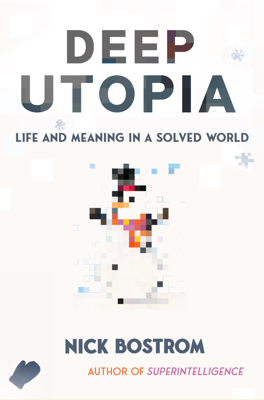Wednesday
Full unemployment revisited
Bostrom explores the notion of "full unemployment" due to successful automation in society. He posits that universal unemployment could lead to idleness characterized by potential mischief unless meaningful engagement is cultivated. He incorporates John Maynard Keynes' thoughts on how humans might struggle to find satisfaction in leisure without the customary drive for economic productivity.
Diverse human responses to abundant leisure
Different societal responses to leisure are discussed, from indulgence in vices like drugs and alcohol, contributing to moral and social decline, to virtuous engagements such as arts and sciences, which might nurture a more inspired and active society. Historical statistical figures like Michael Carroll serve as practical examples of how sudden wealth can lead to self-destructive behavior, contrasting with individuals who transform wealth into constructive pursuits.
The debate over purpose and leisure
Bostrom further examines potential societal shifts towards scenarios of universal basic income where traditional work structures dissolve. He hypothesizes about changes in family dynamics, education reforms, and shifts in global power structures that could stem from such profound economic changes.
Concept of 'Leisure Culture'
Proposing a "leisure culture," Bostrom suggests that societies could recalibrate values around activities not driven by economic output but by fulfillment and happiness. This vision contemplates an education system and cultural norms that advocate for intrinsic rewards rather than material gains.
Interaction with technology
Discussions extend into interactions between humans and advanced AI systems that might become prevalent in managing mundane through complex tasks. Bostain poses ethical questions about reliance on technology for emotional and interpersonal satisfaction, questioning the authenticity of relationships mediated by AI.
Ethical implications and future directions
Finally, Bostrom delves into ethical considerations regarding the use of technology in artificially creating happiness and satisfaction, contemplating whether engineered contentment can equate to genuine human fulfillment. He leaves open questions about the role of governance in regulating technology's impact on society, suggesting ongoing debates and policies will shape the intersection of technology, employment, and leisure in future societies.
